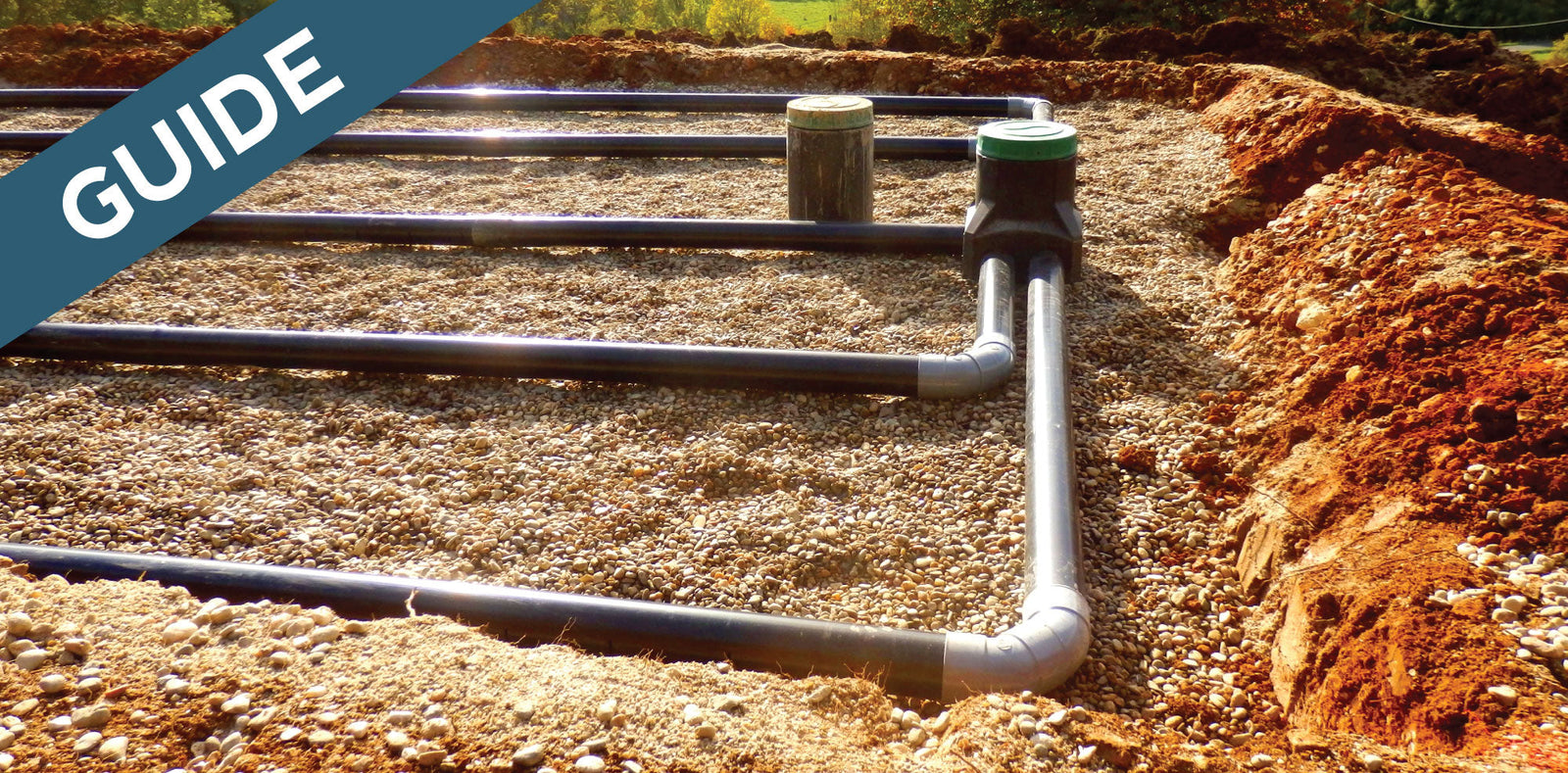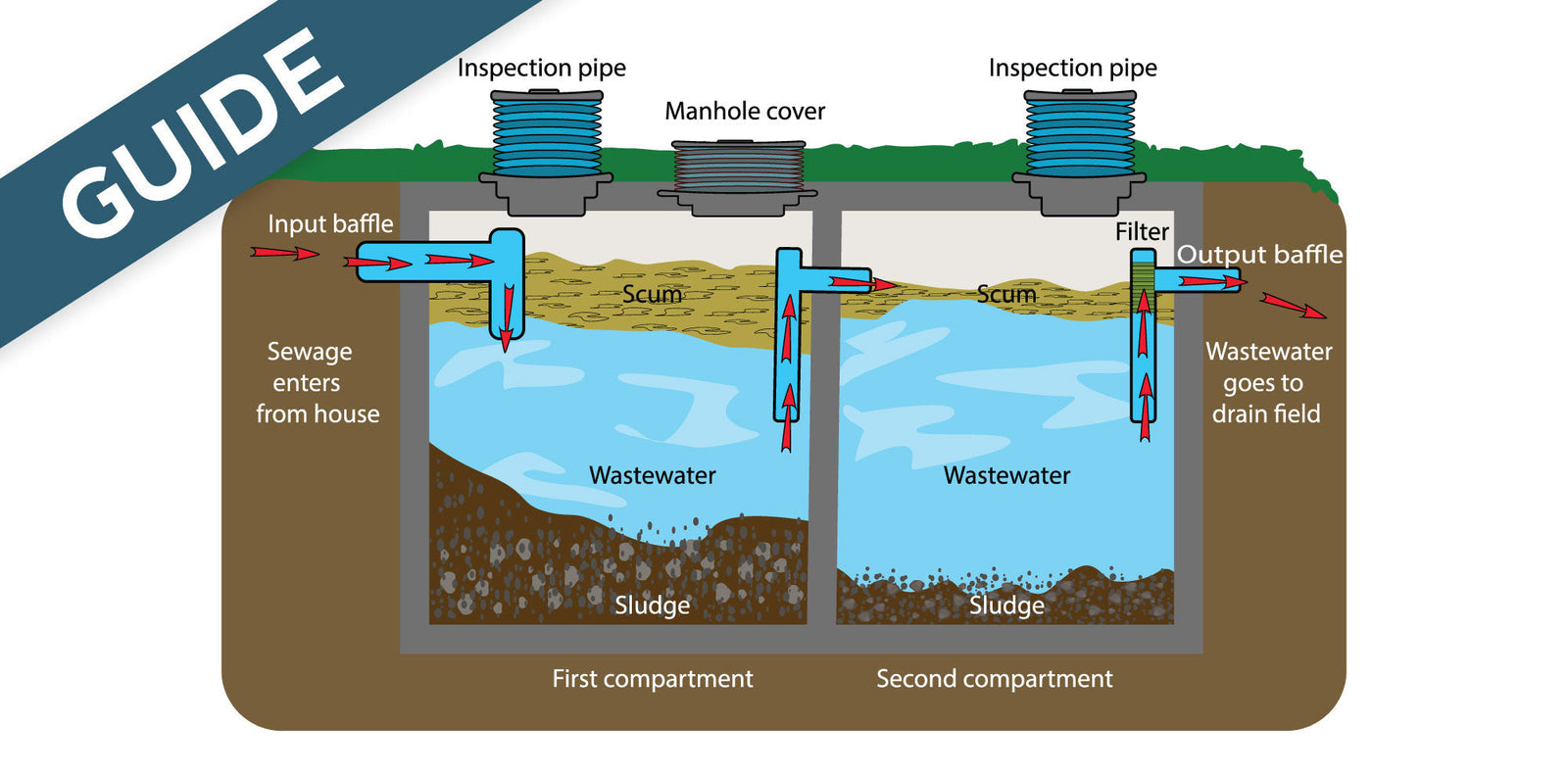Key Points:
- Your septic tank is designed to break down waste into liquids and solids (scum and sludge layers). When a system is functioning properly, liquid waste flows out of your septic tank into the leach field, and solid waste accumulates inside the tank. Solid waste will eventually need to be pumped out of your septic tank.
- The frequency of your septic tank pumps depends on the number of people who live in your household. All the same, as a general rule, you should consider pumping your tank every 2-5 years. This is a good happy medium. Once you’ve determined how often your particular tank needs to be pumped, we recommend that you write it down so you never have to figure it out again!
- In order to avoid a clogged leach field and waste backing up into your home's plumbing system, it's crucial that you pump your tank!
- On average, septic tank pumping by a certified professional will cost between $250-$300. Although this might seem expensive, the cost of repairing your septic system after it's been damaged is exponentially higher, sometimes even exceeding $5000-$10,000!
It’s easy to forget or choose to ignore pumping your septic tank. Maybe it’s been years since you’ve thought about it. Meanwhile, unseen by you, waste has been steadily building up in the tank. Sooner or later, that waste will need to be pumped out. In this article, we'll explore how often you should have your septic tank pumped and hopefully show you just how important it is to do so!
First off, it’s absolutely critical to understand that your home septic tank is not connected to your city’s sewage system. Home septic tanks are normally installed far from city sewer lines, and many of them were built before city sewer lines were even installed! As a result, your septic tank is a closed system. In other words, there's nowhere for solid waste to go after it arrives in your septic tank. No matter how much it's broken down, solid waste will still build up, and the only way to remove it is to pump it out manually.
How Your Septic Tank Works
Your septic tank is a pretty fascinating piece of engineering! It works by breaking down waste and separating it out into liquids and solids. You can help make this breakdown process more efficient by supplementing your tank with a bacteria-enhancing septic product like Unique Septic System Digester. After being broken down, the liquid portion of the waste drains out through your lateral line system (more commonly called a leach field). The leach field is responsible for safely dispersing the liquid waste back into the soil, where it will eventually recycle into the groundwater. Inside your septic tank, the solid waste separates to the top (scum layer) and bottom (sludge layer). As a result, solid waste will not flow out of your tank; instead, it will steadily accumulate until the tank needs to be pumped.
How Often Should You Pump Your Septic Tank?
Let's just say you’re one of those people who check the level of their septic tank regularly. If this is you, that’s great! But if we're being honest, most of us probably don’t check our septic as often as we know we should, which is why it’s important to understand how often to pump a septic system. With that being said, there's no hard and fast answer to this question. Depending on the number of people in your household, the frequency of your septic tank pumps will change.
At the same time, however, it’s possible to determine how often you should pump your particular tank. As a general guideline, it’s probably a good idea to have your tank professionally checked and pumped every 2-5 years. Nevertheless, as mentioned above, this can vary. For instance, because his or her usage is so low, a single individual may be able to go 7-10 years without cleaning out their septic tank. However, a family of 6 will need to have their septic tank pumped much more frequently (maybe even every 2 years). We recommend that you make a note of the number of individuals in your household, check your tank periodically, and write down how often your particular tank needs to be pumped. You could also speak with neighbors who have similar sized families and use the information to determine the frequency that your septic system needs to be pumped.
The Importance of Pumping Your Septic Tank
You might be tempted (like a lot of people are) to continue using your septic system without pumping out your tank. But this is not a good idea! In fact, it’s absolutely crucial that you actually pump out the sewage from your septic tank. There are a number of things that can go wrong if you don’t:
- If you don’t pump your tank, the sludge layer will rise too high and begin to clog your lateral line system.
- If your lateral lines get clogged, it will prevent liquid waste from flowing through the lateral line system, which will prevent it from absorbing into the surrounding soil.
- With nowhere else to go, waste will start to seep to the surface, causing nasty smells and swampy conditions. Waste might even back up into your home’s plumbing system! Obviously, you’ll want to avoid these disgusting, time-consuming, and expensive problems!
The Cost of Pumping Your Septic Tank
When it’s time to pump your septic system, we recommend that you hire a professional pumping service. A professional septic pumping service will safely and efficiently empty the waste out of your septic tank. In all likelihood, there are many septic system pumping services near your home. We suggest that you find one that works best for you! On average, a single septic system pump may cost $250-$300. This might seem expensive, but it's nothing compared to the insane costs of septic system repairs if you choose to neglect proper maintenance! In fact, if you don't pump your tank, it could cost you upwards of $5000-$10,000 dollars to repair a damaged septic system!
We hope this article has given you some useful pointers on how often you should pump your septic tank while also communicating just how important it is! In reality, as part of regular maintenance, all septic tanks will need to be pumped sooner or later. So it’s best to stay on top of maintenance if you want your septic system to function properly for years to come!
Like we always say, we would love to help you if you have any questions or concerns! We want to walk with our customers every step of the way, so please don't hesitate to reach out to us at support@uniquemm.com. We're happy to help!





